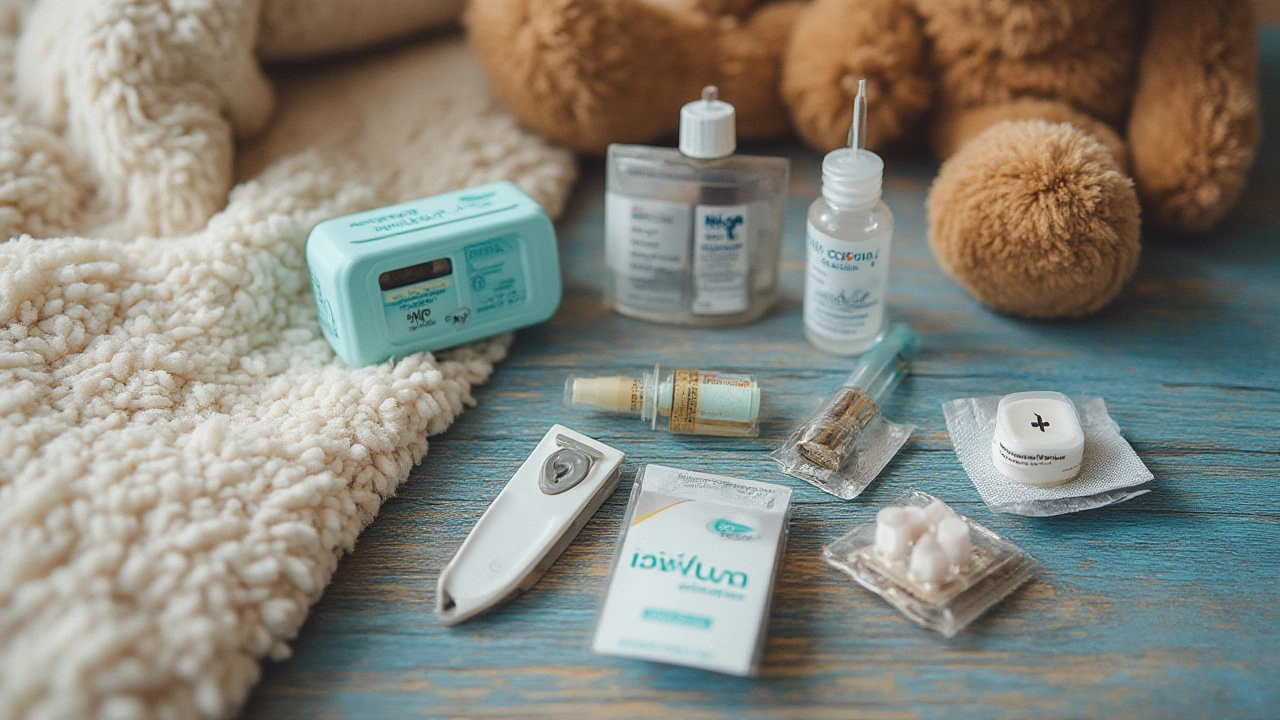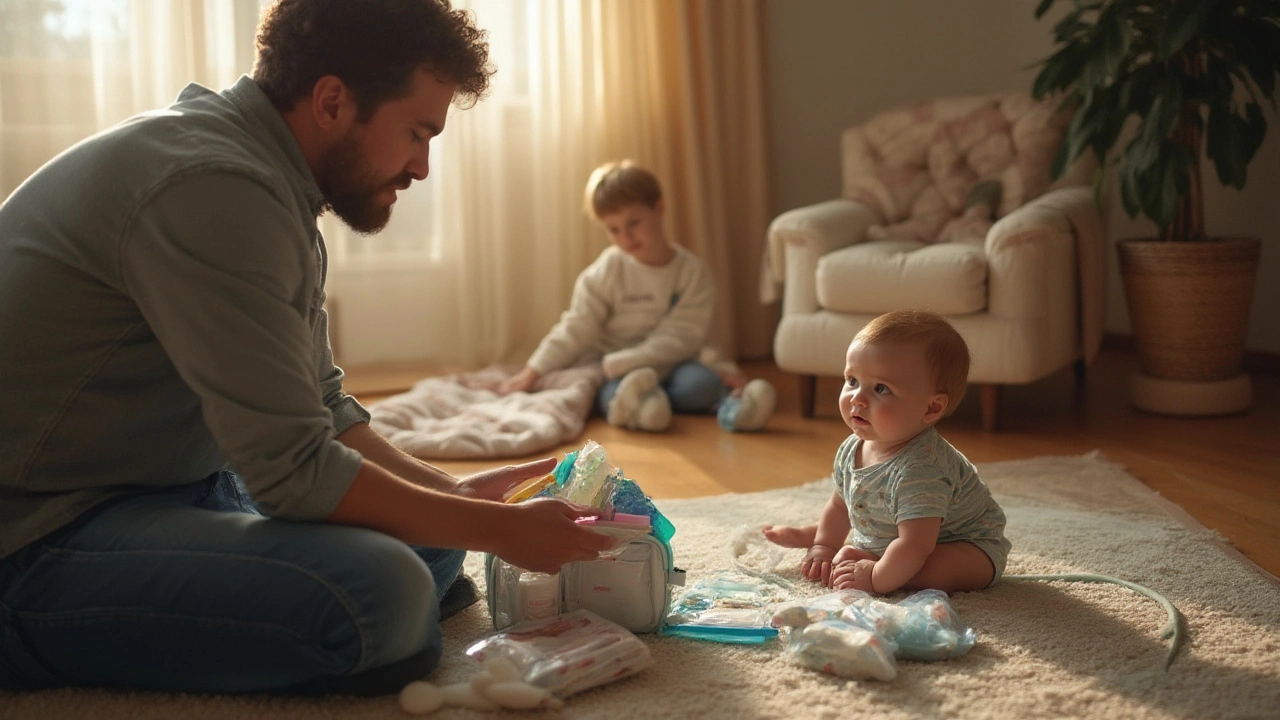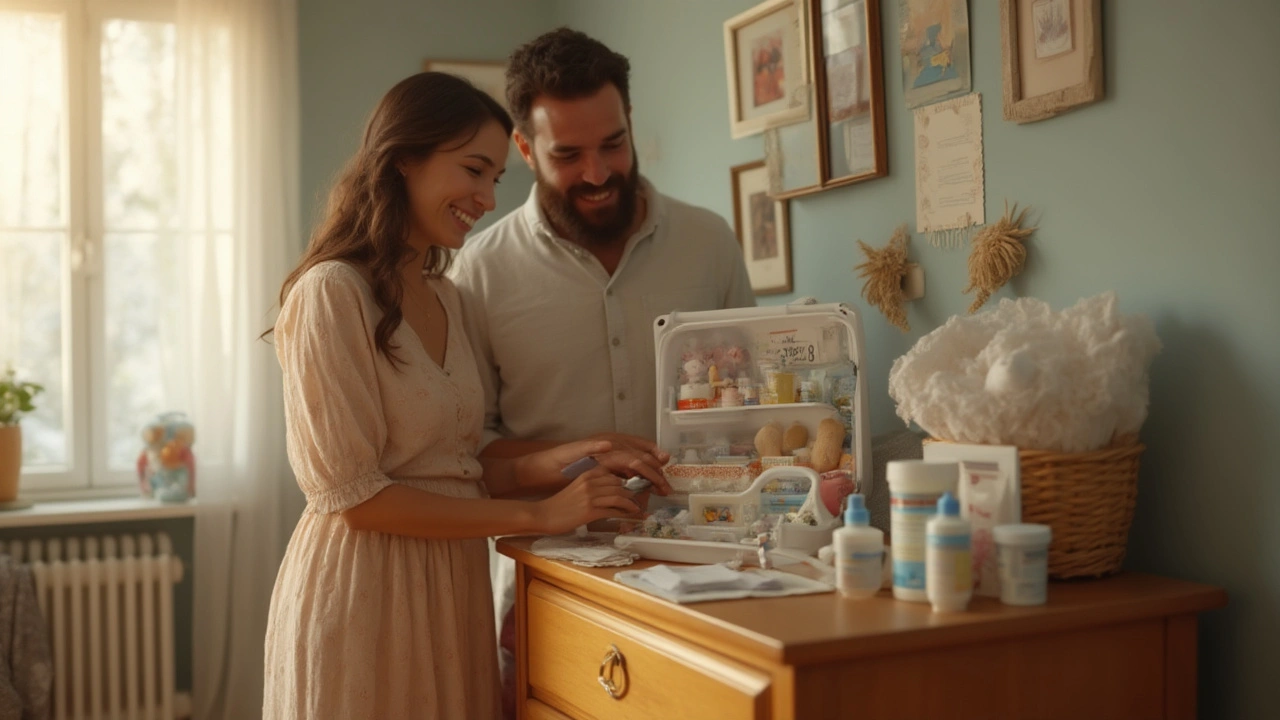Ever wonder if you’re really, truly ready for a newborn? Sure, you’ve got diapers stacked in the closet, baby onesies folded in color-coded piles, and that adorable giraffe toy already waiting. But when the unexpected happens—when your baby spikes a fever at 2 a.m., or you spot a scratch blooming on her tiny cheek—the newborn first aid kit suddenly jumps to the top of your wish list. It’s not just about being prepared. It’s about feeling confident and ready while standing toe-to-toe with the curveballs parenthood throws at you. Here’s what matters most, what myths to skip, and how to actually use all those mysterious gadgets and little tubes.
Why Every Parent Needs a Newborn First Aid Kit
No parent wants to think about emergencies, but let’s be real—the tiniest people tend to bring the biggest surprises. The first year of life can be a blur of firsts, not all of them the kind you want on Instagram. Runny noses, unexpected rashes, and the totally random flailing that somehow results in a tiny scratch can happen faster than you’d guess. Did you know about 9 out of 10 parents don’t have a dedicated first aid kit for their infant, according to a 2023 pediatric survey? Having everything in one place isn’t just reassuring—it can save you minutes when every second counts.
When babies get sick or injured, timing matters. For example, fevers can spike in minutes; knowing exactly where your non-contact thermometer is lets you check their temp without disturbing precious sleep. Those tiny scissors and blunt-edged nail clippers? You’ll want those when your newborn’s razor-sharp fingernails do more damage than a housecat. Not to mention things like nasal aspirators, which sound weird until you’re faced with a congested baby trying and failing to sleep.
And let’s talk about being on the go. Trips to grandma’s, long car rides, or just a stroll through the park can turn tricky fast without basics like baby-safe hand sanitizer or a mini diaper rash cream. The point is, by keeping an organized kit, you drop the odds of a panicked midnight pharmacy run. You also cut out the frantic feeling of rummaging through drawers while your baby wails. Think of your first aid kit as just another piece of gear—like the car seat or stroller—but focused on keeping your newborn healthy and safe in any situation.

Building the Must-Have First Aid Kit for Newborns
Forget the prepackaged kits that claim to have everything but actually miss half of what you really need. Building your own newborn first aid kit means you pick what’s truly helpful—and what isn’t. Here’s the ultimate checklist to make sure you cover all bases, plus some pro tips for making it work in real life.
- Digital thermometer (preferably a non-contact one): Fast readings, no wrestling with baby. Fever and infection in newborns demands speedy assessment and sometimes a call to the doc on the spot.
- Infant acetaminophen (and correct dose instructions from your pediatrician): Never guess the dose, and never use another child’s medication. Babies under 3 months need a call to the doctor for any fever anyway, but meds can be life-saving for pain or after vaccinations.
- Nasal aspirator or bulb syringe: Babies breathe through their noses. Congestion can mean bad sleep or even breathing problems, and a nasal aspirator helps clear stuffy noses fast.
- Baby nail clippers and soft emery board: Newborn nails are sneaky sharp. Clip or file them regularly to prevent accidental scratches, especially on the face.
- Saline drops or spray: Dry air, colds, or allergies can stuff up those tiny noses. Saline loosens mucus and makes aspiration easier.
- Bandages in baby-friendly sizes: Don’t reach for adult-sized bandages on delicate newborn skin. Get hypoallergenic, latex-free ones designed for small fingers and toes.
- Gauze pads and medical tape: For any tiny scrape or accidental finger prick, better than just a plain bandage.
- Baby-safe antiseptic wipes or solution: Clean wounds without the stinging alcohol burn. Good for cleaning your own hands too when soap and water aren’t around.
- Diaper rash cream: Diaper rash can show up overnight and spiral fast. Keep a travel-size tube for home and another in your on-the-go kit.
- Alcohol-free hand sanitizer: Parental hands aren’t always spotless, so hand sanitizer is a must before you touch their bottle, pacifier, or rash site.
- Tweezers with a rounded tip: For safely grabbing splinters—which, weirdly, can happen even to brand-new babies from things like wicker bassinets or even rough burp cloths.
- Small flashlight or headlamp: Useful late at night for checking rashes or peering into tiny ears—no one wants to fumble with a phone screen while balancing a crying baby.
- Thermal blanket: Babies can get cold super quick, especially during fevers, illness, or emergencies. A space blanket is small, lightweight, and can be a lifesaver.
- Emergency contact card: Have your pediatrician’s info, poison control, and your own contact details written on actual paper and tucked in the kit. Not everything is on your phone when you need it most.
Here’s a tip that made all the difference for me: Put everything in a clear, zippered pouch—one for home, one for the diaper bag. No more rummaging, no more confusion. And check your supplies every couple months; medications expire, bandages get used, tweezers disappear (always!).
One fact that caught me off guard: Pediatricians say over 60% of new parents use expired or half-empty remedies without realizing it. Set a reminder on your phone to check and refresh your kit every season so you’re not caught off guard when it matters most.
Don’t fall for hype around "miracle" gadgets or bulk packs of adult products relabeled for babies. Stick to proven basics, and make sure everything you buy is approved for newborn use—because their sensitive skin and developing systems can’t handle the same stuff older kids (or adults) use.

Practical Tips for Using and Maintaining Your Kit
You’ve built your kit. Now, how do you make sure it works when you need it—and doesn’t just gather dust in the nursery?
Start with practice. Really. Open every item, read instructions, and try them out (not on the baby!). Get familiar with how the thermometer turns on, how the nasal aspirator assembles, and how to use baby nail clippers without making yourself nervous. It sounds obvious, but when a fever hits or your child is wailing, muscle memory is a lifesaver.
Keep the kit somewhere you can reach with one hand. Nightstand drawer, kitchen counter, or a shelf by the diaper change station—it should never end up buried under baby books. Label the pouch clearly with "First Aid" so grandparents, babysitters, or sleep-deprived parents can spot it fast.
Make the kit a living part of your routine. After every doctor’s appointment, double-check you haven’t used or misplaced anything. When you swap out the diaper bag for an overnight bag, move the on-the-go kit. Some parents stash an extra thermometer and bottle of saline drops in the stroller basket because, let’s face it, babies have their own sense of timing.
Worried about giving the wrong meds or using something wrong? Talk to your pediatrician about safe medication use, especially dosing. Most pharmacies will give you a dosing syringe for free with your prescription, so use that instead of guessing with kitchen spoons.
Dealing with worried partners or eager grandparents? Walk them through what’s in the kit. Show them how to use the thermometer, what the nasal aspirator does, and where contact info is hidden. Snap a picture of the contents and share it with anyone watching your baby so they know what to grab and how it works.
Let’s not gloss over emergencies. Every parent’s worst fear is a real medical crisis. In those moments, having a stocked and familiar kit lets you focus on the big decisions, not the tiny details. Keep the emergency contact card up to date (yes, actually fill it out). Have poison control’s direct number—not just the hospital’s—because the American Association of Poison Control received over 350,000 baby-related calls last year alone. Most incidents ended with reassurance and at-home remedies—because parents had the right supplies on hand.
And because baby products are always evolving, keep an eye out for recalls on any meds, thermometers, or even creams. Better safe than sorry, right? Sign up for recall alerts through your local health department or favorite parenting site.
In the first wild months of parenthood, there’s something strangely empowering about reaching for the right tool and seeing your baby calm, clean, and comfortable moments later. A newborn first aid kit doesn’t just guard against chaos—it gives you back a little slice of sanity and control, exactly when you need it most.


Written by Eldridge Fairweather
View all posts by: Eldridge Fairweather